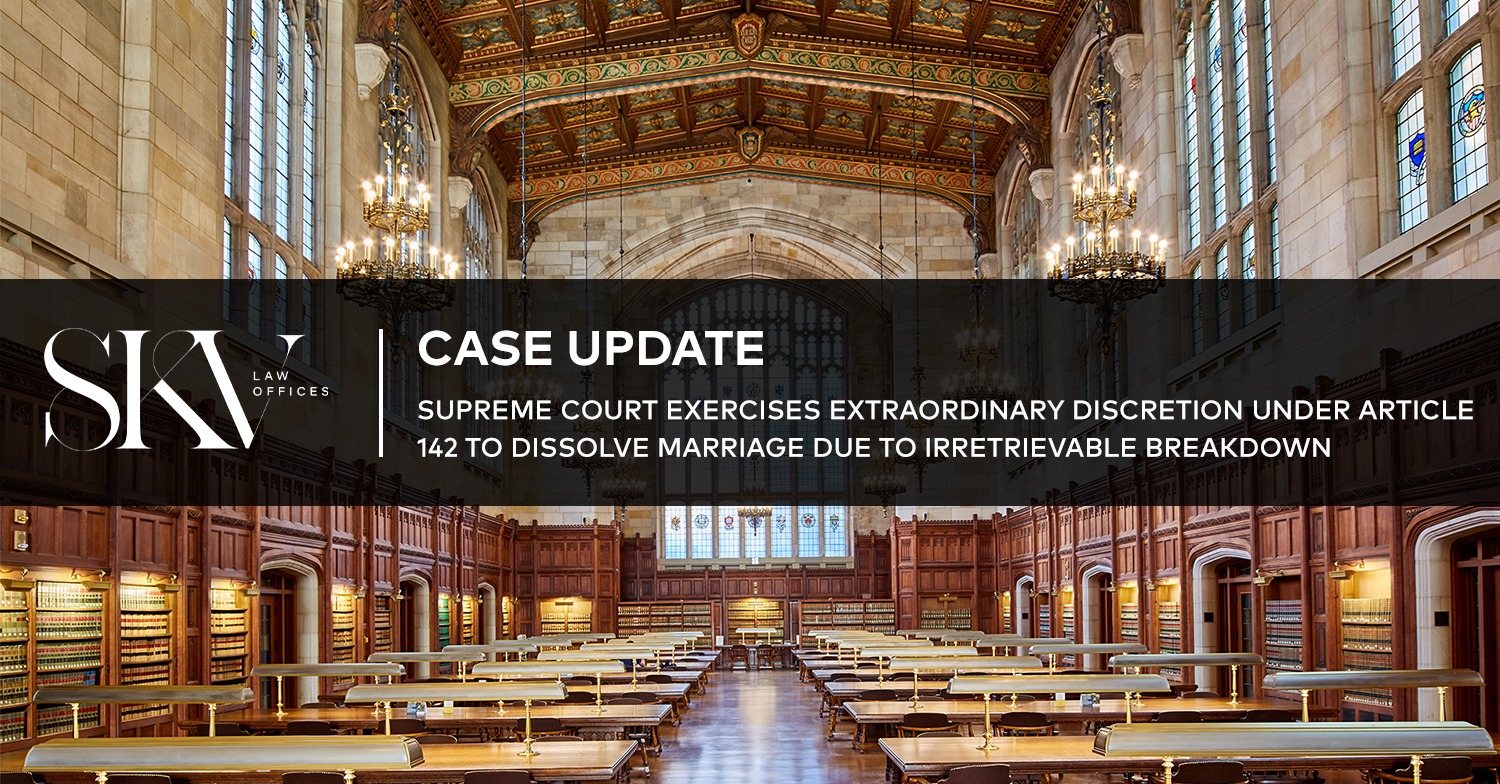Supreme Court Exercises Extraordinary Discretion Under Article 142 to Dissolve Marriage Due to Irretrievable Breakdown
10.08.2024
In a rare instance, the Supreme Court has exercised its extraordinary discretion under Article 142 of the Constitution of India to dissolve marriage based on the ground of irretrievable breakdown. This move highlights the Court’s ability to address situations where traditional grounds for divorce may not fully capture the complexities of a failed marital relationship.
SKV represented the interests of the wife, who had filed a petition seeking the transfer of a divorce case instituted by her husband from the Family Court in Chandigarh to the Family Court in her local jurisdiction of Panchkula. SKV on behalf of the wife argued that it would be more convenient for her to contest the proceedings in Panchkula, which is closer to her place of residence, compared to the distant location of Chandigarh.
At the initial hearing, the Supreme Court granted ex-parte stay order on the divorce proceedings initiated by the husband in Sealdah, West Bengal. However, recognizing that the marriage between the parties had irretrievably broken down and that they had mutually agreed to dissolve their marriage, the Supreme Court exercised its extraordinary discretion to formally dissolve the marriage on the grounds of irretrievable breakdown.
The Supreme Court’s extraordinary discretionary power under Article 142 is invoked to ensure complete justice for the parties involved. The Court exercises this power when it is satisfied that the facts presented demonstrate the marriage has completely failed, there is no possibility of the parties reconciling and living together again, and continuing the formal legal relationship is no longer justified. The Supreme Court set the precedent of invoking it’s powers under article 142 to dissolve a marriage in the case titled Shilpa Shailesh V. Varun Srinivasan, in May 2023 – where the court held “in exercise of power under Article 142(1) of the Constitution of India, (the Court) has the discretion to dissolve the marriage on the ground of its irretrievable breakdown.”
In present case, the Supreme Court being fully convinced and satisfied that the marriage is totally unworkable and beyond salvation decided that the dissolution of marriage is the only way forward.
During the pendency of the divorce proceedings, parties had also filed different criminal and legal proceedings against each before different forums. Supreme Court took note of same and invoked its extraordinary discretion under Article 142 of the Constitution of India to quash pending criminal or legal proceedings, between the parties.
SKV emphasizes that it is in the best interest of all parties, including the individuals involved, to formally legalize the dissolution of a marriage that has irretrievably broken down. Granting a divorce in such cases prevents the continuation of litigation, suffering, misery, and torment. Furthermore, quashing any pending legal or criminal proceedings between the parties will allow them to start afresh by clearing the slate clean.
The Client was represented before the Hon’ble Supreme Court by Shri Venkatesh, Managing Partner and Shivam Kumar, Associate of the SKV Team.


